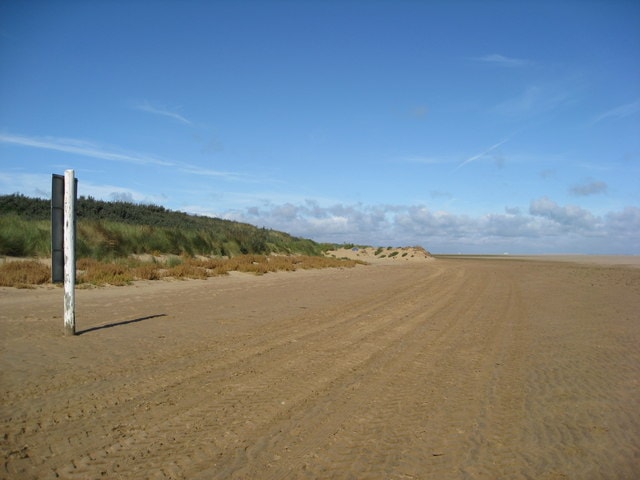Pioneered by the Environmental Law Foundation, the Rights of Rivers in Lewes, UK, sets a landmark precedent, weaving nature’s rights into the fabric of legal and societal consciousness. This breakthrough victory in environmental history could steer us towards a future where respect for nature is legally recognised and societally embraced.
Understanding and safeguarding our environment is a collective task that transcends geographical, cultural, and political boundaries. Deeply rooted in Indigenous traditions and philosophies, the Rights of Nature discourse has emerged as a powerful tool in this global mission.
The UK is making strides to embody this ethos within a local context, championing the rights of its waterways. This article, authored by the Environmental Law Foundation (ELF), discusses the recent Rights of Rivers victory in Lewes, spotlighting the journey, challenges, and implications within a uniquely British context.
The Unique Challenges and Opportunities in the UK Context
With its diverse ecosystems, the UK is an ideal arena for a shift towards the Rights of Nature discourse. Noted as one of the most nature-depleted countries globally, the nation’s environmental challenges, which range from habitat loss and climate change-induced flooding to river pollution, are complex and deeply intertwined with socio-economic factors.
Historically, UK law has treated rivers and other natural entities merely as resources, contributing to a divide between humans and nature. Despite a cultural tradition that includes rich landscape poetry, vibrant local conservation groups, and public support for green spaces, the tangible impact on environmental stewardship has been insufficient.
The Rights of Rivers movement capitalises on this cultural affinity for nature, aiming to bridge the legal and philosophical divide. The potential for significant shifts exists within the UK’s common law tradition; locally tailored initiatives like the Lewes case could set precedents and gradually alter legal frameworks.
This synthesis of cultural fondness for nature and legal flexibility creates fertile ground for the Rights of Nature to take root in the UK. Each successful motion and each river granted rights strengthens this narrative, nudging the UK towards a more holistic, eco-centric perspective.
However, it’s vital to acknowledge the gap between cultural appreciation for nature and tangible actions that safeguard it. The true measure of success lies in bridging this gap, integrating the Rights of Nature into both legal frameworks and societal consciousness.
The Role of the Environmental Law Foundation
In this transformative journey towards the Rights of Rivers motion in Lewes, ELF played a pivotal role, providing essential legal expertise and advocacy. Working with local group, Love Our Ouse (LOO), drawing on our comprehensive knowledge of environmental law and policy, we co-authored the motion alongside Cllr Matthew Bird.
Our team, including Emma Montlake and Tom Brenan, focused on translating the Rights of Nature ethos into a legally sound and actionable motion. We also played a role with LOO in the facilitated community involvement, understanding the need for local stakeholder engagement in this initiative.
ELF will also play a significant part in developing the upcoming Charter. This document will outline the rights and responsibilities of all stakeholders, ensuring that the River Ouse’s voice is heard and respected. As a rights advocate for nature, ELF continues to work closely with Lewes and other communities, guiding them in navigating the intricate legal landscape surrounding the Rights of Nature.
In the case of the River Ouse, we’ve seen a profound shift in perspectives — one that recognises the inherent rights of nature. This ground-breaking motion is one of the first instances in England where a river is granted explicit legal rights.
The Unravelling of the Lewes Case
Our journey towards the Rights of Rivers was complex. We found ourselves grappling with an entrenched anthropocentric perspective, a cornerstone of the UK’s legal and policy frameworks.
Achieving the paradigm shift required a concerted effort, calling upon a coalition of local environmental groups, concerned citizens, and empathetic legal practitioners to foster understanding and drive advocacy.
The Lewes motion was distinguished by its intense local focus. It put local concerns at the forefront, depicting the Ouse River not merely as a body of water but as an integral community member with its own inherent rights. This portrayal wasn’t strategized in an office but was nurtured organically through community involvement.
Related Articles: Should Nature Be Given Legal Rights? | Europe’s Efforts to ‘Restore Nature’ Hit a Snag | Ecological Collapse: Why We Should Return to Nature
The Lewes community, in its interactions with the river — be it a stroll during the River Festival, children playing along the banks, or sharing river stories over the strains of local music — brought forth a sense of unity and purpose.
The river, once a silent, ever-present entity, was suddenly imbued with a life and vitality that mirrored their own. Each Lewes resident holds a unique memory of the Ouse, and these shared experiences only strengthened their bond with the river.
This collective recognition dawned — the Ouse was more than just a river; it was the town’s soul. It was their past, their present, and with their commitment to its protection, their future.
Implications for Lewes and Beyond
The recognition of the Rights of the Ouse River has significant implications, albeit not immediately apparent. On the surface, the local community may not see drastic changes in their daily lives. However, a profound shift is taking place beneath this seeming normalcy.
Legally, the river’s rights could lead to enhanced protection and conservation efforts for the river and surrounding ecosystems. It may translate into stricter regulations against pollutants or other activities that could compromise the river’s health. More sustainable local development is another possible outcome, as future projects must respect the river’s rights.
Societally, this decision could foster a sense of environmental stewardship among local inhabitants. Recognising the river as a rights-bearing entity can shift attitudes and behaviours, facilitating increased respect and care for the natural world.
Looking Ahead: The Future of River Rights in the UK
The success in Lewes could ripple across the UK. The case provides a precedent and a roadmap for other communities to follow, potentially initiating a paradigm shift within the UK’s legal and policy frameworks towards a more eco-centric approach. It also signals a growing societal shift in consciousness, a move towards recognising our interconnectedness with the natural world.
The Rights of Rivers motion in Lewes represents a profound shift in our legal and societal relationship with nature. It serves as a reminder that our rivers, ecosystems, and our planet are not mere resources. They are living, vital entities with their own rights.
The journey ahead won’t be without obstacles. Enforcement of these rights might prove challenging, given that existing UK laws don’t readily accommodate such a paradigm shift. Conflicts may arise between the rights of the river and pre-existing human rights or property rights. However, the Lewes victory provides a foundation for continued advancements in the field.
The Lewes case offers a roadmap for other communities and localities seeking to assert the rights of their rivers and natural spaces. It provides a successful model of community involvement, legal innovation, and sustainable development strategies, grounded in respect for nature’s intrinsic rights.
This journey is a testament to the power of local action. While the Lewes case offers an inspiring narrative, the true measure of its impact will be observed in the actions it inspires elsewhere.
It is hoped that other communities, fuelled by the success of the Lewes motion, will pursue similar initiatives and integrate the Rights of Nature into their local governance and development strategies.
We envision a future where the Rights of Nature isn’t a fringe concept, but a core principle of our relationship with the environment.
Recognising nature’s rights doesn’t simply involve reframing our laws, but also reshaping our collective consciousness. It entails a deeper understanding that our well-being is intimately tied to the health of our rivers and ecosystems.
The success in Lewes brings us one step closer to a future where nature is viewed not as property, but as a life-bearing entity with inherent rights. A future where nature’s rights are respected and protected under the law.
The journey towards recognising the Rights of Nature in the UK is just beginning. It is a path laden with challenges, but also marked by profound opportunities for transformation. As we traverse this path, the Environmental Law Foundation remains committed to advocating for nature’s rights, supporting local initiatives, and fostering an ethos of respect and reverence for the environment.
Let Lewes serve as a beacon of hope and change, illuminating the way towards a more harmonious, eco-centric relationship with our natural world.
Editor’s Note: The opinions expressed here by the authors are their own, not those of Impakter.com — In the Featured Photo: River Ouse, Lewes, UK. Featured Photo Credit: Natasha Padbury of Love Our Ouse.














